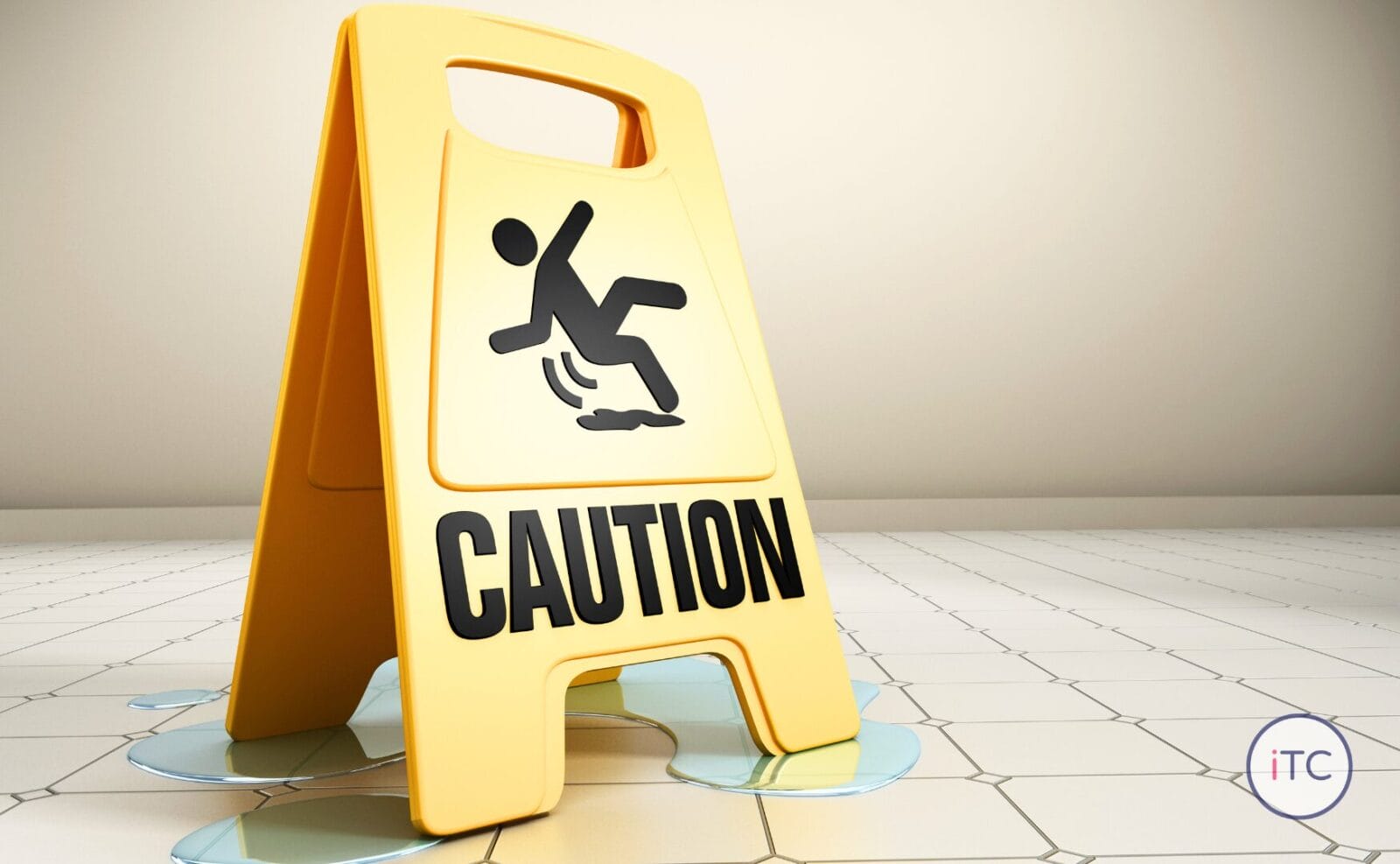Third-party insurance provides coverage when an insured party is held legally responsible for causing injury or damage to another person or their property. The terms: third-party insurance, liability insurance, and third-party liability insurance, all refer to the same thing. In this article we’ll explain what this type of insurance is all about, why you REALLY need it, and how it works.
What is third-party insurance?
‘Third-party insurance’ refers to insurance designed to cover loss incurred by the insured party as a result of their legal liability to a third party. It is called “third-party” because it protects the insured (the “first party”) against financial loss due to claims made by another person (the “third party”) who suffers injury, damage, or financial loss. In insurance terms, the third party is the individual or entity experiencing the loss.
This insurance is also called ‘liability insurance’ as the loss it protects against is due to the insured’s legal liability. Liability in insurance is the legal obligation to do something such as to compensate another party for costs or injury. In other words, liability insurance covers the legal and financial responsibility an insured has toward others.
This insurance helps pay legal costs, court-ordered compensation, or negotiated settlements. Without it, you would have to cover these expenses out-of-pocket. Importantly, liability insurance does not pay for your own injuries or damage to your own property. Those have nothing to so with the ‘third party’. It only covers harm or losses suffered by others due to your actions or negligence.
Liability insurance is a key part of many policies. For example, auto insurance, home insurance, and business insurance all include liability coverage.
A closer look at liability
Liability refers to a legal responsibility. It means being held accountable for causing harm, injury, or damage to another person or property. This can happen to individuals or businesses in many ways. Accidents, mistakes, or negligence are all common causes of liability.
Liability arises when someone is found legally responsible for harm. That harm could be physical, emotional, or financial. If you hurt someone, damage their property, or fail to act responsibly, you may be liable.
There are many types of liability:
- Personal liability: This covers harm caused by individuals. For example, if someone slips on your icy sidewalk.
- Professional liability: This applies to professionals like doctors, lawyers, consultants, or brokers. It covers claims of errors, omissions, or negligence.
- Product liability: This involves businesses that make or sell products. If a defective item injures someone, they can be sued.
- Premises liability: This affects property owners. If a visitor is injured on your property, you may be responsible.
Liability can lead to lawsuits, settlements, and court judgments. These can be stressful and expensive. That’s where insurance becomes important.
How liability insurance works
Liability insurance is triggered when a claim is made against you. If someone says you caused harm, they may file a claim (e.g., a lawsuit). Your insurance company will then investigate.
The process usually follows these steps:
-
-
-
- An incident occurs.
- A third party files a claim saying they suffered injury.
- You notify your insurer and they investigate to see if you’re liable.
- If you are, they defend you in court.
- The insurer pays any court-ordered amount or settlement.
-
-
The insurance company may also cover legal fees, even if you’re not found guilty.
What it covers
- Medical bills and repair costs
- Legal defence fees
- Settlements or court judgments
- Some investigation and claims handling costs
It’s included in many common policies like car insurance, home insurance, and business insurance.
What’s not covered
- Intentional or criminal acts
- Some high-risk activities
- Obligations in private contracts
Always read your policy to understand what’s included and excluded.
Types of liability insurance
There are many types of liability insurance. Each protects you in different situations. Here are some examples:
- Auto liability insurance: Required by law in Canada. Covers third-party injuries or damages that you cause while driving.
- Homeowners liability insurance: Part of your home insurance policy. Covers accidents that happen to others on your property.
- General liability insurance: For businesses. Covers injuries, property damage, and lawsuits from daily operations. Also called Commercial General Liability (CGL).
- Professional liability insurance: Also known as errors and omissions (E&O) insurance. Covers service providers from mistakes or poor advice.
- Directors & Officers Liability Insurance: Protects directors and officers from incurring personal loss as a result of claims brought against them in the course of their regular duties managing the organization.
- Umbrella/Excess liability insurance: Provides extra protection beyond standard policy limits. It kicks in after your other policies reach their limit.
Some types of insurance policies may include liability (third party) coverage together with other coverages on a single policy. For example, most cyber insurance policies include both first- and third-party (liability) coverage.
Choosing the right liability coverage depends on your risks. It pays to talk to an insurance professional to learn about the different options.
When you might need it
Here are some examples where liability insurance would help:
Example 1: You rear-end another car. The driver gets injured. Your auto liability insurance covers their medical costs.
Example 2: A courier slips on your icy steps. They break an ankle. Your home insurance pays for their treatment and lost wages.
Example 3: A client sues you for bad financial advice. Your professional liability insurance helps with legal defence and potential settlement.
Without insurance, you’d pay for these costs yourself. This can be financially devastating.
Why liability insurance matters
Liability claims can happen to anyone. Accidents, misunderstandings, and mistakes are part of life. But without coverage, the financial hit can be serious.
Benefits of liability insurance
- Covers large and unexpected costs
- Protects your income and assets
- Reduces stress during legal claims
- Often required by law or contracts
If you own a business, it also protects your reputation. Customers feel safer knowing you have coverage.
How to choose the right coverage
Not all liability policies are the same. Here are some tips for picking the right one:
- Assess your risk: Think about your assets and what could go wrong.
- Read the policy: Understand what is covered and what’s not.
- Check coverage limits: Make sure the policy covers large potential claims and how that coverage works.
- Understand when/how a claim must be reported: For instance, is the form on a occurrence form or a claims made form.
- Ask for help: Work with a licensed broker or agent.
- Update regularly: Your organization, liability risks, and insurance products evolve; so should your liability insurance coverage.
Updating your coverage regularly ensures you’re always protected. Remember, liability can affect anyone, at anytime. Liability insurance protects you from the costs of claims, lawsuits, and damages. It offers peace of mind and financial security. Understanding how it works helps you choose the right coverage. Make sure you’re protected before something goes wrong. Talk to a broker, review your needs, and keep your policies up to date.
Key Takeaways
- Third-party insurance and liability insurance are the same thing. They protect the insured against claims made by others who suffer injury, property damage, or financial loss.
- Liability insurance covers legal defence costs, settlements, and court judgments.
- Coverage is designed for harm caused to others (third parties), not for the insured’s own injuries or losses.
- There are many different kinds of liability policies, each for a different kind of risk such as auto, homeowners, general liability, and professional liability insurance.
- Proper liability protection is essential for financial security and risk management. Brokers should help clients understand exposures, policy limits, and exclusions to ensure complete protection.
There are many different kinds of liability insurance. Read more about …
- Directors and Officers Liability Insurance Explained
- Employment Practices Liability Insurance Explained
- Fiduciary Liability Insurance Explanation and Video
- General Liability Insurance Explained
- Media Liability Insurance
- Professional Liability Insurance Explained




